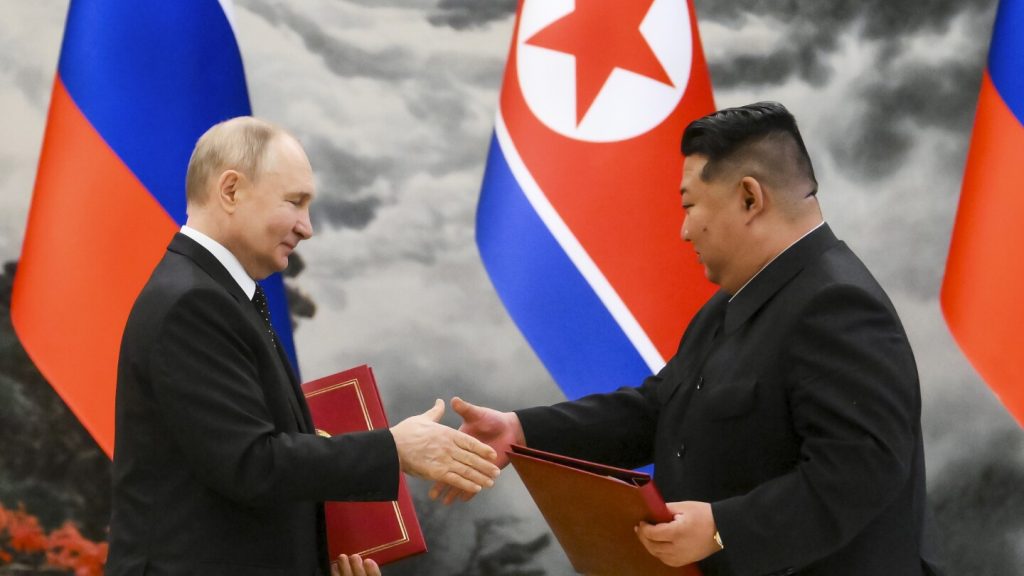China is facing a dilemma as Russia and North Korea strengthen their partnership through a new defense pact, potentially shifting the balance of power among the three authoritarian states. The deal signed by Kim Jong Un and Vladimir Putin requires both countries to provide defense assistance if attacked, raising concerns about China’s loss of influence over North Korea and increased instability on the Korean Peninsula. Beijing has not commented on the pact publicly, reflecting uncertainty and conflicting goals in response to the situation.
Some in Beijing may view the Russia-North Korea partnership as a way to counter American dominance in global affairs, but there is also discomfort in China regarding the potential consequences. China does not want to lose its influence over North Korea to Russia, see a destabilizing nuclear power near its borders, or bring conflict from Europe to Asia. However, China has not raised these concerns publicly, likely to avoid pushing Kim Jong Un further into the arms of Vladimir Putin. The White House has expressed concern over the pact, referencing U.N. Security Council resolutions on North Korea and the conflict in Ukraine.
China’s concerns may also lie in the possibility of Russia assisting North Korea’s weapons program with advanced technology. With leverage over both Russia and North Korea, China could attempt to restrict the relationship between the two countries. The meeting between Putin and Kim marked another chapter in the complex political and military relationships in East Asia, where China has emerged as a leading power. The U.S. has raised alarms over China aligning itself with Russia, North Korea, and Iran to challenge the current world order, a claim that Beijing has rejected.
Beijing has emphasized that it does not want to form a three-way alliance with North Korea and Russia, as it aims to keep its options open and maintain relationships with Europe, Japan, and South Korea. China is determined to avoid a new Cold War and locking itself to Pyongyang and Moscow would go against its goals. While the rapprochement between North Korea and Moscow presents uncertainties, China’s national interests have not been significantly undermined so far. Closer ties between Putin and Kim could potentially weaken China’s influence in the region, making it the “biggest loser” in the situation, according to former U.S. diplomat Danny Russel.
The dilution of Chinese leverage over North Korea could allow Kim Jong Un to disregard Beijing’s calls for restraint, potentially leading to chaos at a time when Chinese leader Xi Jinping seeks stability. The evolving dynamics between Russia, North Korea, and China pose challenges for Beijing’s foreign policy goals and regional influence. As the situation unfolds, China will need to carefully navigate its response to the growing partnership between Russia and North Korea, balancing its concerns over security, stability, and maintaining its influence in the region.


